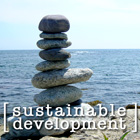
|
CHINESE CITY STRUGGLES WITHOUT WATER, AMID CHEMICAL CONTAMINATION The Chinese city of Harbin and environs, located in Heilongjiang province, and home to an estimated 3.8 million people, is beset with a severe water crisis. Panic buying followed hoarding of municipal water, after authorities announced they would shut off the entire municipal water system, to spend four days testing and cleaning water reportedly contaminated by runoff from a chemical plant explosion. Officials with the Harbin water authority indicated they had calculated precisely the time at which the polluted water would enter the municipal water supply from the Songhua River, descending from Jilin province, and that they hoped residents would be able to stockpile water to last the project four days without supply. Today, it has been reported that contaminated river-borne sludge, a 50-mile-long slick of benzene, flowed into Harbin, as authorities had anticipated. The government has defended its handling of the situation, claiming its actions in warning local authorities prevented residents from being sickened, despite complaints they should have contained the spill to prevent its entering a major population center. Benzene is an extremely toxic substance, which in high concentrations can lead to blood cell abnormalities, including leukemia. Zhang Lanying, environment scientist at Jilin University, has told the press it is clear the directors of the chemical plant in Jilin which suffered the deadly blast on 13 November are to blame for the explosion and its aftermath. Many sources are now beginning to note China suffers from a serious scarcity of water, and that this resource is becoming less available as industrial, agricultural and personal use increase in the world's most populous nations. The Guardian notes: "Hundreds of cities regularly suffer shortages of water for drinking or industry. Protests have erupted in rural areas throughout China over complaints that pollution is ruining water supplies and damaging crops." North China, home to 43% of the nation's immense population, enjoys only 14% of its water resources. Per capita water availability of 750 cubic meters per year in northern China equates to less than one-third the nation's average, already one of the lowest in the world, and is well below the international standard for severe scarcity of 1,000 cubic meters per year. The US EPA and USDA foreign agricultural team are reportedly working in China's Hai River basin to create sustainable water use policies to increase the availability of clean drinking water for cities and for farming. The Jilin-Harbin benzene contamination appears to highlight a growing problem for China's authorities: the connection between widespread pollution and public perceptions of official coverups and deceptive public reports. Earlier this year, villagers living along the Chaoshui River responded to months government inaction against chronic and worsening contamination —which resulted in the death of most of the fish and a toxic silt building up in the river— by staging midnight raids against hillside mines. Angry villagers destroyed over 200 mines of varying sizes and market value, and in a sign of where public sentiment stands, local Communist party officials opted not to intervene. The incident led to a genuinely rare and surprising event in China, the joining of village party representatives with locals in forming a prohibited organization opposed to the central government. The Washington Post reported in September that village leaders threatened to resign as a group unless the central authorities acted to prevent the contamination that was ruining their community, and that more violence would follow if the answer was inaction. Hu Jintao's government reportedly fears the protests may set a precedent and may spread to other areas which face similar crises related to scarce water supply, intensifying contamination and government indifference. Some observers suggest the protests could loosen the Communist party's grip on power. It is not a case of one spill or of four days without water. China is facing serious trials in light of its water supply, which may drive costs for basic needs and services up to untold levels and, some fear, undermine China's unrelenting economic growth. [s]
|
|||||||||||||||||||||
|
||||||||||||||||||||||







